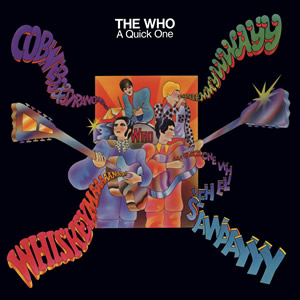
A Quick One is the second studio album by the English rock band the Who, released on 9 December 1966. A version of the album with an altered track listing was released under the name Happy Jack on Decca Records in April 1967 in the United States, where the song "Happy Jack" was a top 40 hit.
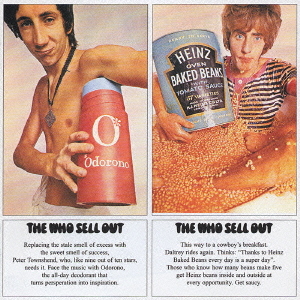
The Who Sell Out is the third studio album by the British rock band the Who. It was released on 15 December 1967 by Track Records in the UK and Decca Records in the US.

Who Are You is the eighth studio album by English rock band the Who, released on 18 August 1978 by Polydor Records in the United Kingdom and MCA Records in the United States. Although the album received mixed reviews from critics, it was a commercial success, peaking at number 2 on the US charts and number 6 on the UK charts.

The Who have been with several labels over the years. In the United Kingdom and elsewhere outside North America, they were signed originally to Brunswick Records. In 1966, they moved to Polydor Records and took the rights to their Brunswick recordings with them. They created and moved to Track Records the following year with distribution by Polydor. They left Track in 1974 and returned to Polydor directly, remaining with the label ever since.
"My Wife" is a song by the British rock band the Who, written by bass guitarist John Entwistle. It was originally released in 1971 on Who's Next and later as the B-side of the single "Baba O'Riley" on 6 November 1971 in Europe by Polydor Records.

"5:15" is a song written by Pete Townshend of British rock band The Who. Part of the band's second rock opera, Quadrophenia (1973), the song was also released as a single and reached No. 20 on the UK Singles Chart, while the 1979 re-release reached No. 45 on the Billboard Hot 100.
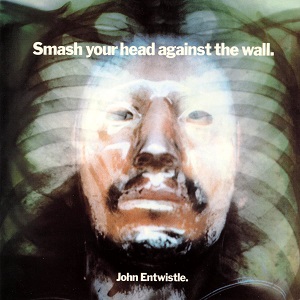
Smash Your Head Against the Wall is the debut solo studio album by English musician John Entwistle, released in May 1971 by Track Records in the UK and Decca Records in the US. Smash Your Head Against the Wall was the first solo album by any member of rock band the Who, born out of Entwistle's frustrations within the band, namely not having as many of his songs featured on their albums as he would've liked, and it features a guest appearance by the Who's drummer Keith Moon on one track, as well as strong musical influences from the band's work.
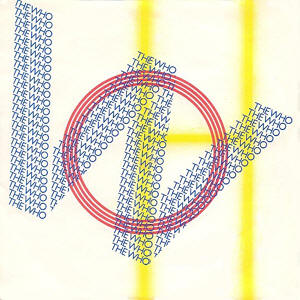
"Who Are You" is the title track on The Who's 1978 album, Who Are You, the last album released by the group before Keith Moon's death in September 1978. It was written by Pete Townshend and released as a double-A sided single with the John Entwistle composition "Had Enough", also featured on the album. The song was one of the band's biggest hits in North America, peaking at number 7 in Canada and at number 14 in the US, and has become one of the band's signature tunes at their live shows. The piano on the track is played by Rod Argent.
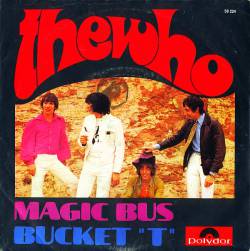
"Magic Bus" is a song recorded by British rock band the Who. It was written by their guitarist Pete Townshend during the time that their debut album My Generation was being recorded in 1965. However, it was not recorded until 1968, when it was released as a single on 27 July 1968 in North America, followed by its release in the United Kingdom on 18 September 1968. It has become one of the band's most popular songs and has been a concert staple, although when released, the record only reached number 26 in the UK and number 25 in the United States. The song was included on their 1968 album Magic Bus: The Who on Tour.

Who's Greatest Hits is a 1983 greatest hits compilation album from The Who released in the US. It includes the rare track "Relay", presented here in its original full length. An earlier appearance on Hooligans has shortened it by almost 30 seconds. It also includes the original single version of "Won't Get Fooled Again". Who's Greatest Hits has sold over 2 million copies and was certified 2x platinum by the Recording Industry Association of America.

Hooligans is a double compilation album of The Who released by MCA Records in 1981. It focuses on Who songs from the 1970s with only the titles "I Can't Explain", "I Can See for Miles" and "Pinball Wizard" from the 1960s. The album reached #52 on the US charts.
"Armenia City in the Sky" is a song by the English rock band the Who, released on their 1967 album The Who Sell Out. It is the only song on the album not written by any members of the band, as it was instead written by Speedy Keen, a friend of the band. Both Keen and Roger Daltrey sing the song through effects filter.

"Circles" is a song by the Who. The song, initially planned to be a Who single, saw a complicated release history. There are versions produced by the Who and by Shel Talmy.

Who's Missing is a compilation of rare and previously unreleased songs by The Who. Its second part Two's Missing was released on 11 April 1987.

"I Don't Mind" is a rhythm and blues song written by James Brown and performed by Brown and the Famous Flames. Released as a single in 1961, it reached number four in the R&B Billboard charts and number 47 in the Pop Billboard charts. Brown and the Flames also performed it on their 1963 album Live at the Apollo

"Join Together" is a song by British rock band The Who, first released as a non-album single in May 1972. The song has since been performed live multiple times and has appeared on numerous compilation albums.
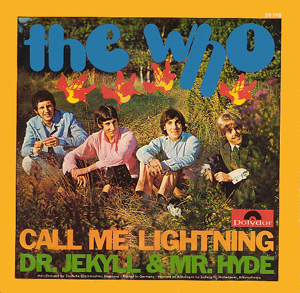
"Dr. Jekyll and Mr. Hyde" is a song by English rock band, the Who. It was written by the band's bassist, John Entwistle.

"Trick of the Light" is a song written by bassist John Entwistle for The Who's eighth studio album, Who Are You. It was released as the second single from the album, atypically with another Entwistle song, "905" on the B-side, but did not chart.

"Relay" is a song written by Pete Townshend, the guitarist of The Who, for the band's aborted Lifehouse project. The song was also released as a moderately successful single in 1972. It was also the last non-album single by The Who until "Real Good Looking Boy", 32 years later.
"Disguises" is a song by English band, The Who, written by guitarist Pete Townshend. It was first released on the group's 1966 extended play Ready Steady Who. It, along with "I'm a Boy" are of the earliest compositions in which Townshend questions gender identity and identity crisis', a prevalent aspect found later in his songwriting. "Disguises" and "I'm a Boy" also marks the first time Kit Lambert received credit as a record producer for the Who, something that had previously been credited to Shel Talmy and Townshend.
















